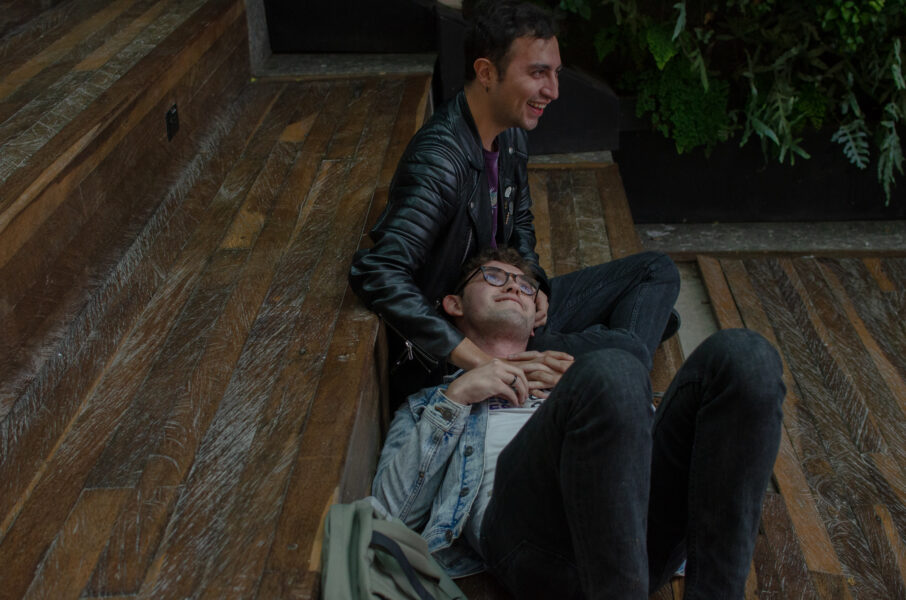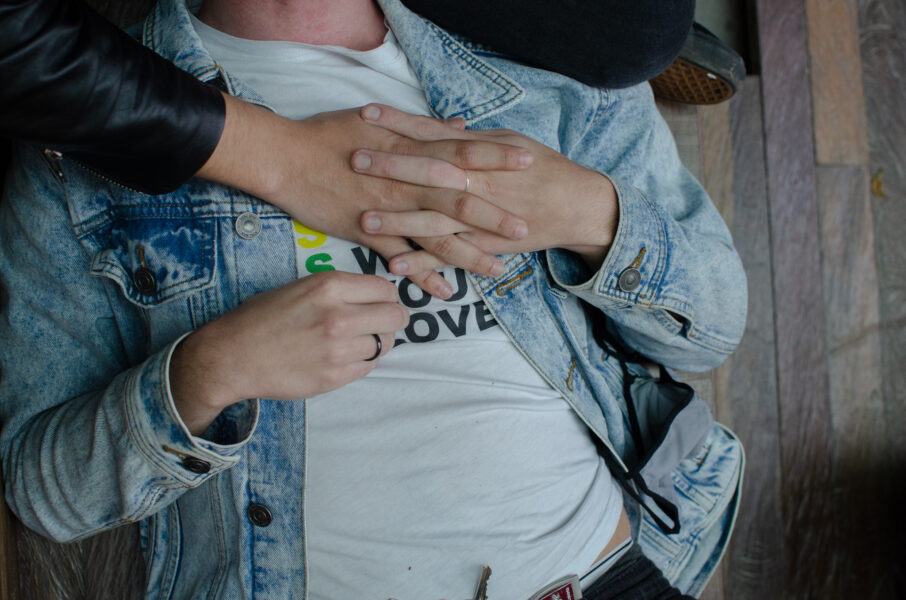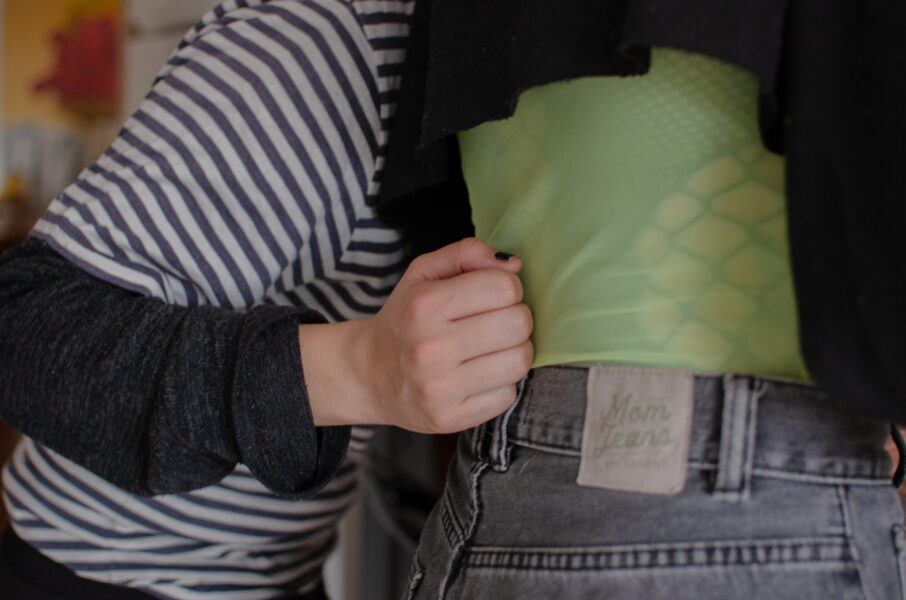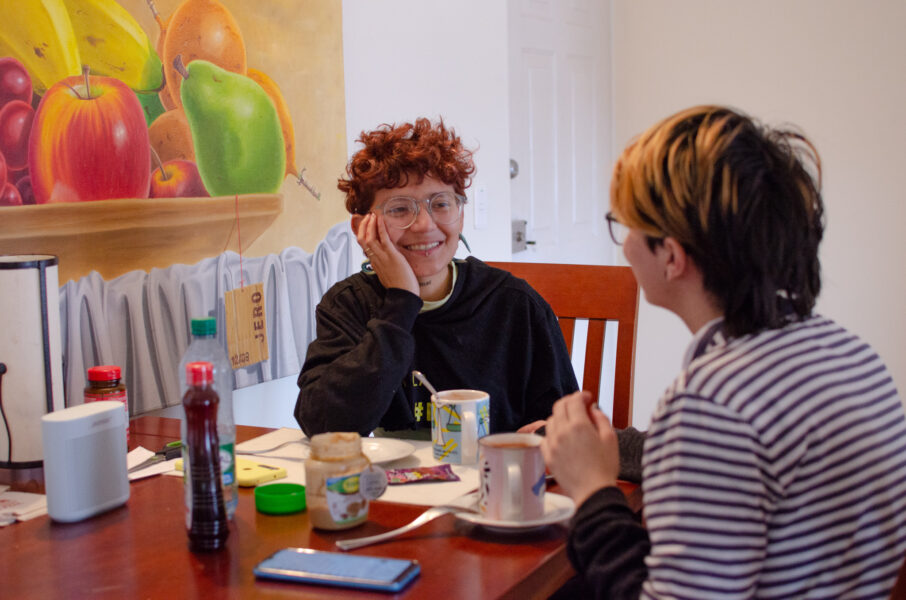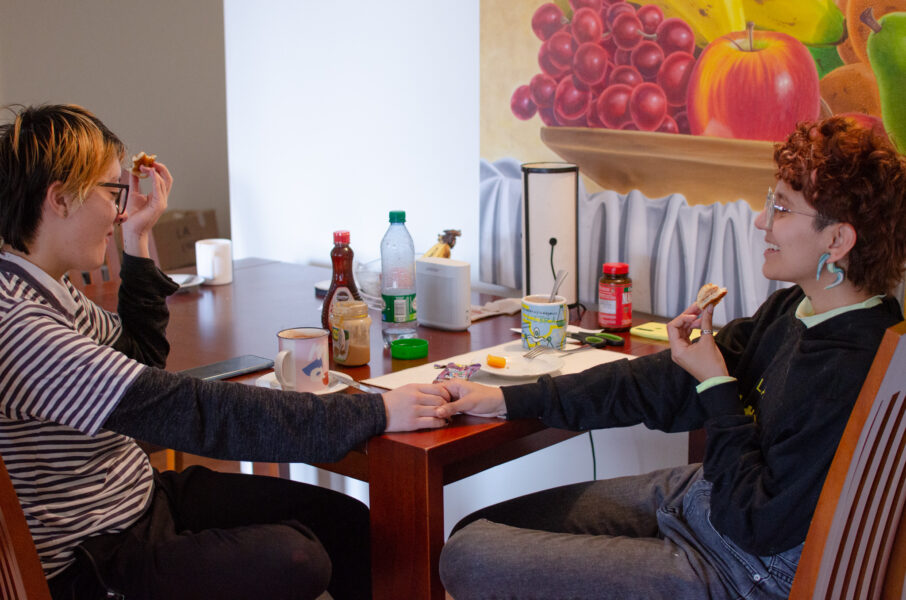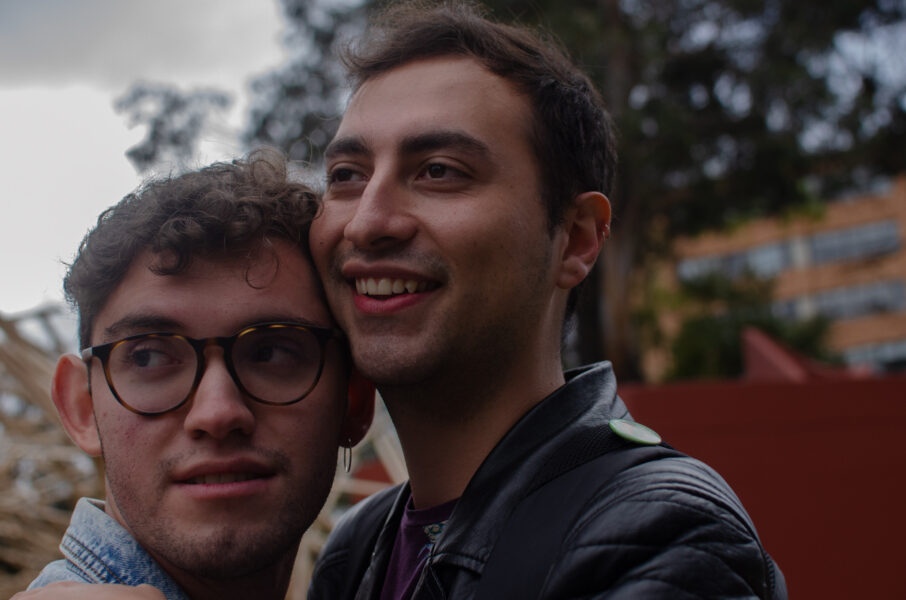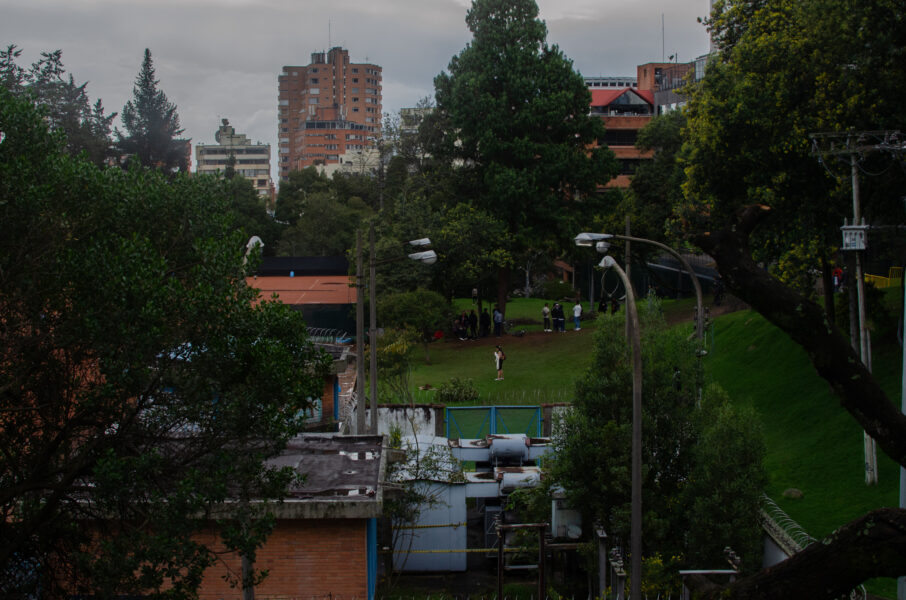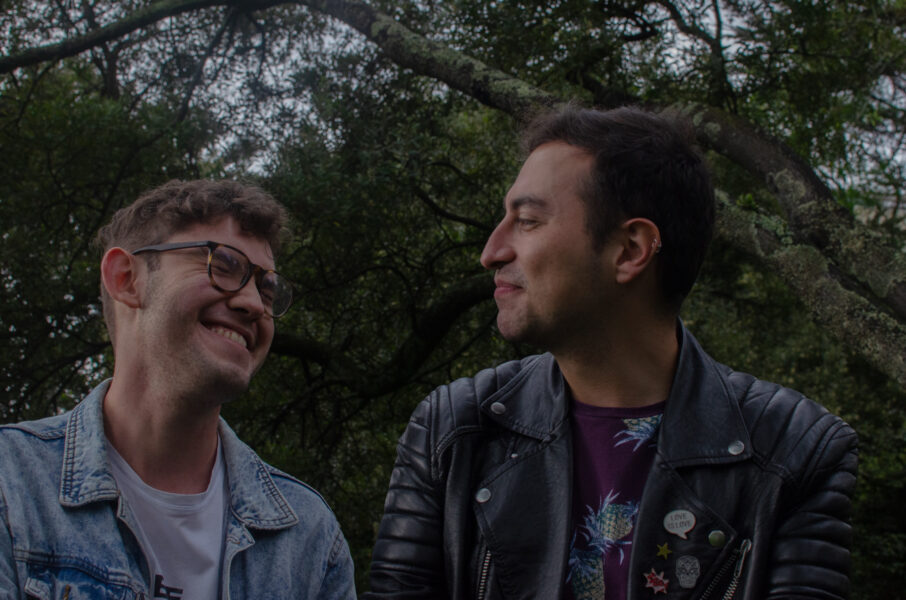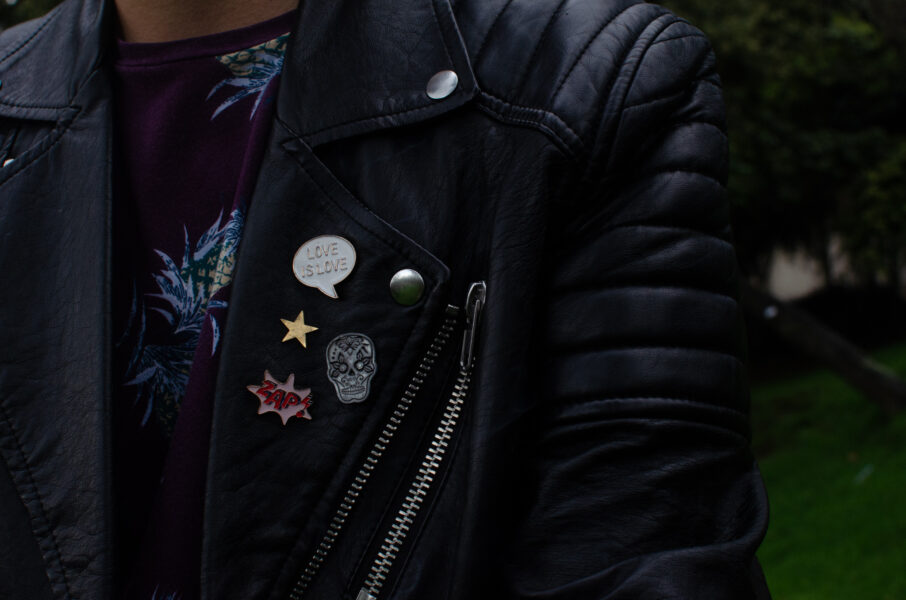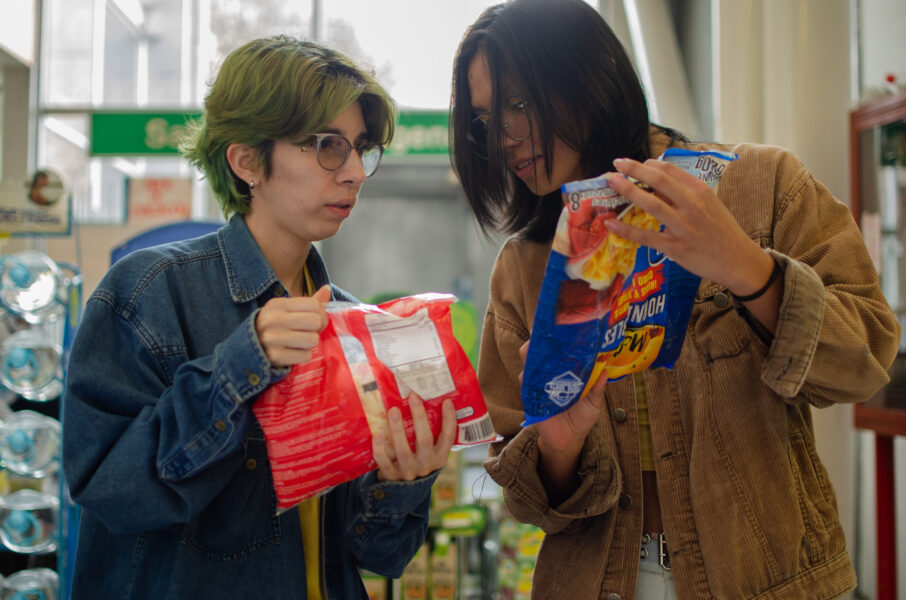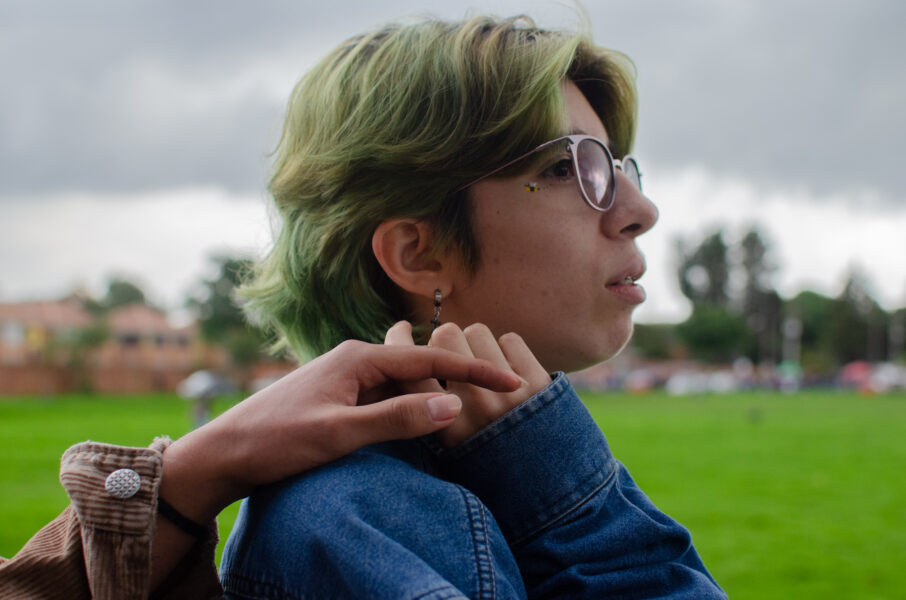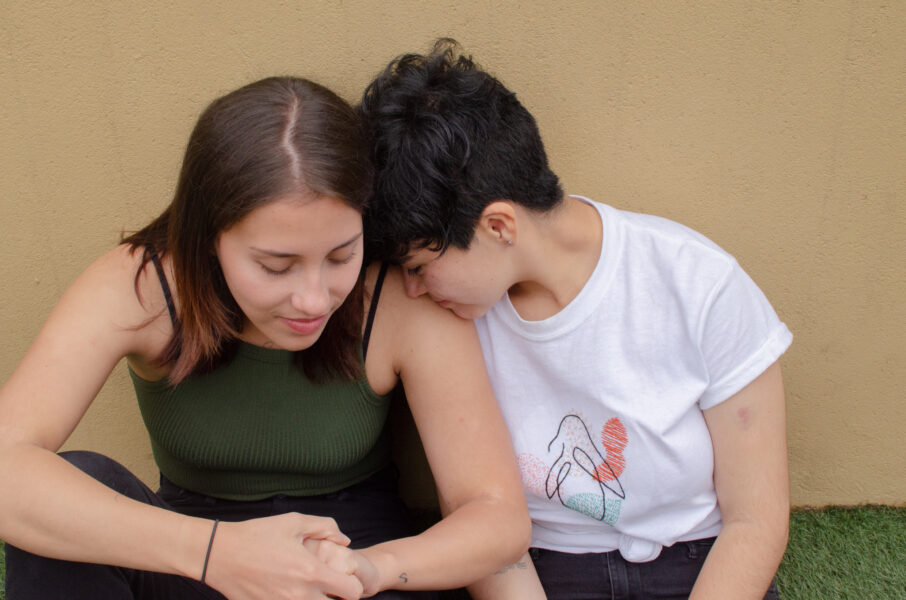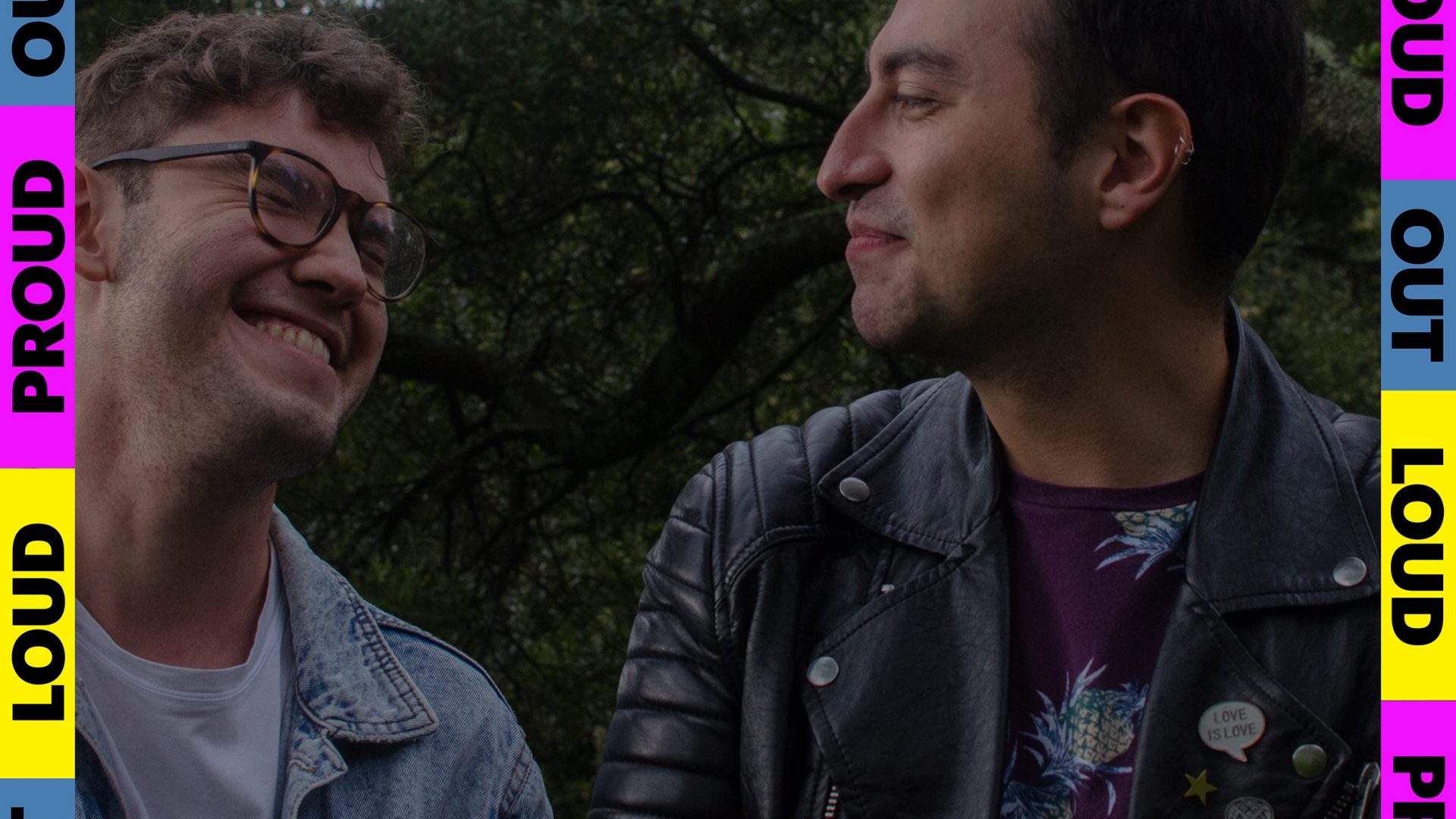
LGBT+ Couples in Colombia: The streets remain dangerous
In 2019, Dani García Pulgarín petitioned the Colombian National Registry of Civil Status to change the gender marker in her national ID card to a third option. After a series of refusals, Colombia’s Supreme Court ruled on Dani’s case stating that her rights to equality, human dignity and free development of her personality have been violated.
With this ruling, the Supreme Court essentially decided that the Government should provide a third option when it comes to gender in official documents.
Colombian photographer Valentina Prada photographed LGBTQI+ couples exclusively for Eteron, in places where they feel safe, and talked to them regarding their coming out experience, the acceptance of diversity in schools and the recent institutional developments in Colombia.
Mar and Dan
Mar came out to its mother when it was 11 or 12, while riding the tramway. Her reaction was “Oh well, that’s okay”. Mar remembers its mother as being understanding and nice at the time. It then told its dad while shouting, because – according to it – that’s how it tells him anything. Its father hugged it and everything was fine. It came out as trans a little while later in a group chat on WhatsApp.
-Hi, I’m trans.
-Great!
Its family was very understanding and respectful of its sexuality and gender identity and this helped regarding its diversity acceptance from a very young age.
Still, school was a whole different arena.
Mar attended eight different schools until it graduated. In one of them, the sex education teacher urged students to ask questions. Mar asked how it could take better care of its sexual health with a female sex partner. The teacher replied that she didn’t have information on that matter. “That’s when I realised that sex education was not meant for me, but rather for all my straight peers”, says Mar.
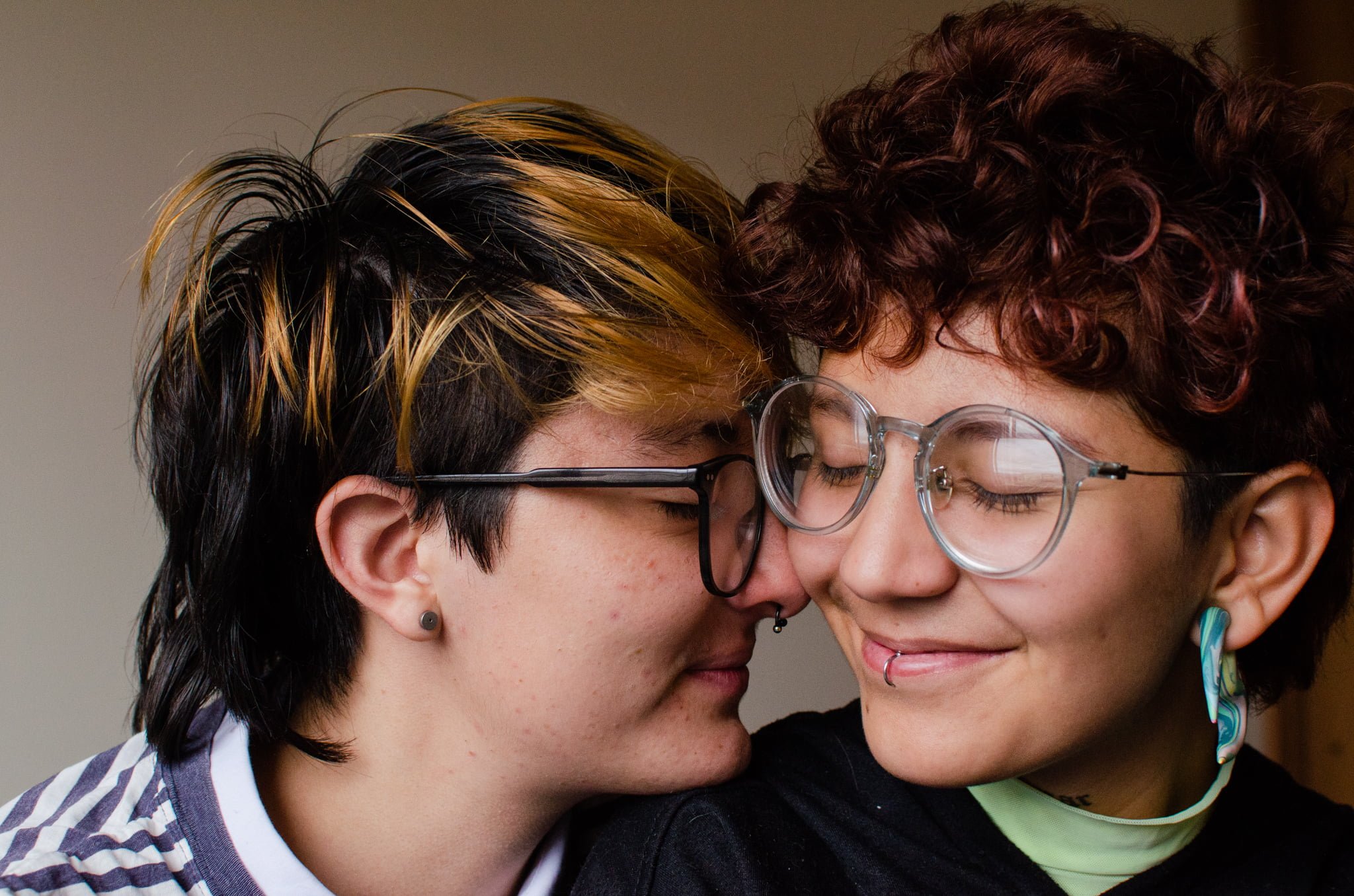
It also has another memory from that same school, though. It concerns the school psychologist and how she treated her. When it told her that it was bi – that’s how it identified sexually at the ti e – the psychologist organised an activity where the students had to form a circle and in the middle of it they put a chair. Each child had to sit on the chair and share something about its life with their peers. The psychologist urged Mar to come out as bi, if it felt comfortable to do so. Mar sat on that chair and said “Hello, I’m bisexual”. The psychologist thanked it for sharing this with all of them. Mar remembers this as a beautiful moment because it felt that its teacher accepted who it was in front of all the other students.
Mar thinks that non-binary people’s legal recognition was a right that was granted after continuous fights and pressure on behalf of the LGBTQI+ movement and not because the State actually understood that this was a right that should be protected and established for everyone. “Rights are not won because the state accepts that we deserve them. They’re only “won” because the state gets tired, I suppose. The institutions are tired of that pressure and give up eventually. So I feel that everything happens because we exert pressure rather than in order for us to feel better and live a dignified life”.
Mar is worried about the Police’s reaction to the change in the ID documents for non-binary indivuduals. It wonders if the new IDs will bring out even more hate and transphobia from the Police because “in Colombia the police are binarily separated and they search you binarily as well. So if they believe that you are a woman, they search you as a woman, if they read you as a man they search you as a man”. So how will this protocol change to reflect the new reality?
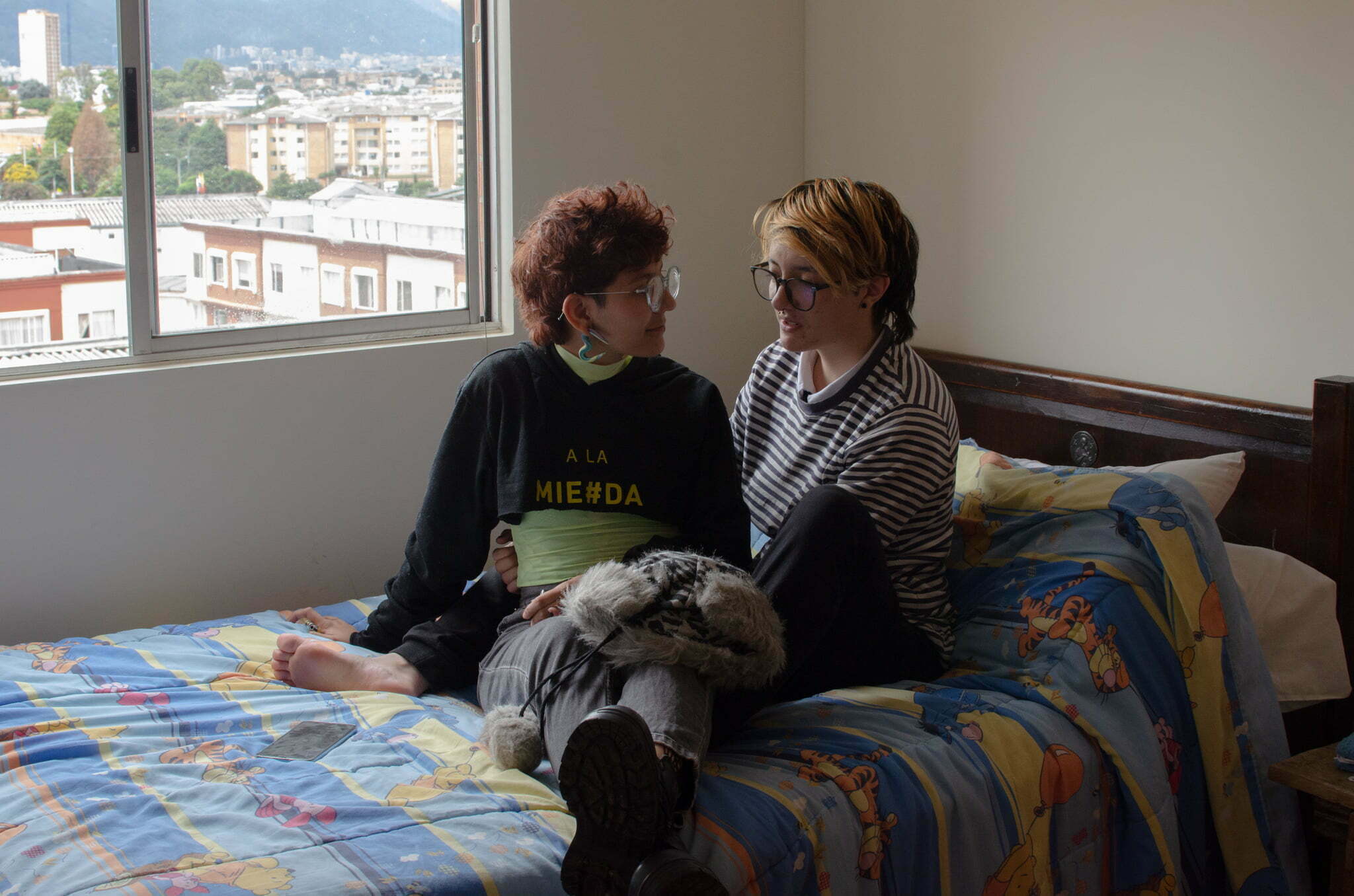
Dan never considered hiding its sexual orientation. It said that although family communication may have been complex at times, its family never rejected its way of living.
Dan believes that school is one of those spaces that create and reinforce institutional biases, instead of opening and hosting new conversations regarding cultural diversity. It was only when it came of age and got in touch with self-managed and independent political spaces that it was able to have this conversation. “This is where I understood the value of diversity in a community”.
As a non-binary person, Dan is happy it now has the option for the document that identifies it to correspond to its view of itself, but it believes that this is just the beginning of a bureaucratic battle. Dan is concerned about the legal gaps in Health, Pensions and Education that it feels should be reformed. “I hope that this conversation also opens within state agencies as it has opened in the streets”.
Both Dan and Mar feel that their homes are safe spaces and outside that, they feel that the University is the only non-transphobic space they have ever been to.
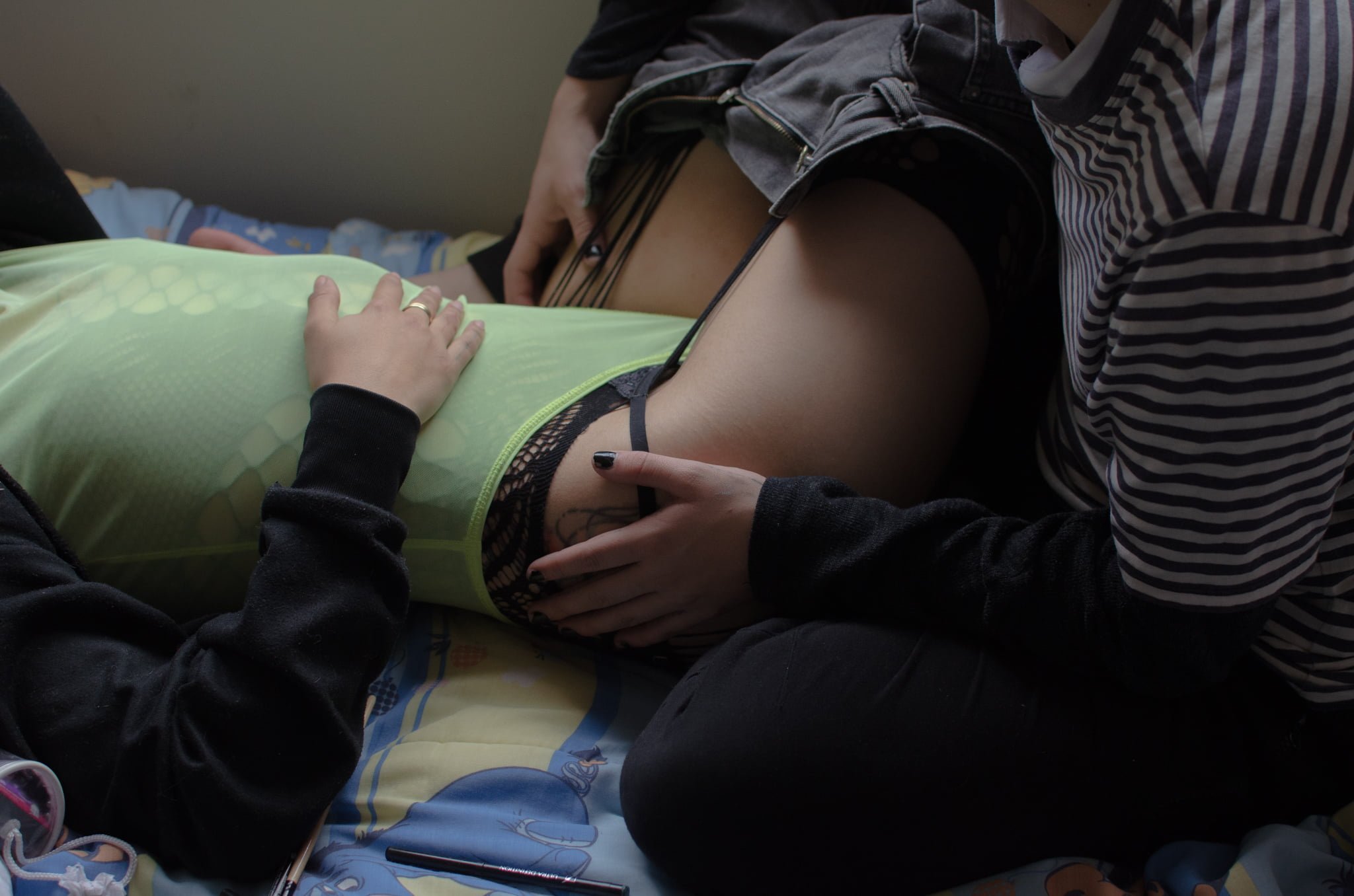
Alejandra Esteban and Lyn Porras
For Alejandra and Lyn it was easy to come out regarding their gender identity to their friends, parents and family members that were close to their age. On the other hand, they said that it has been really difficult in the case of older family members and older people.
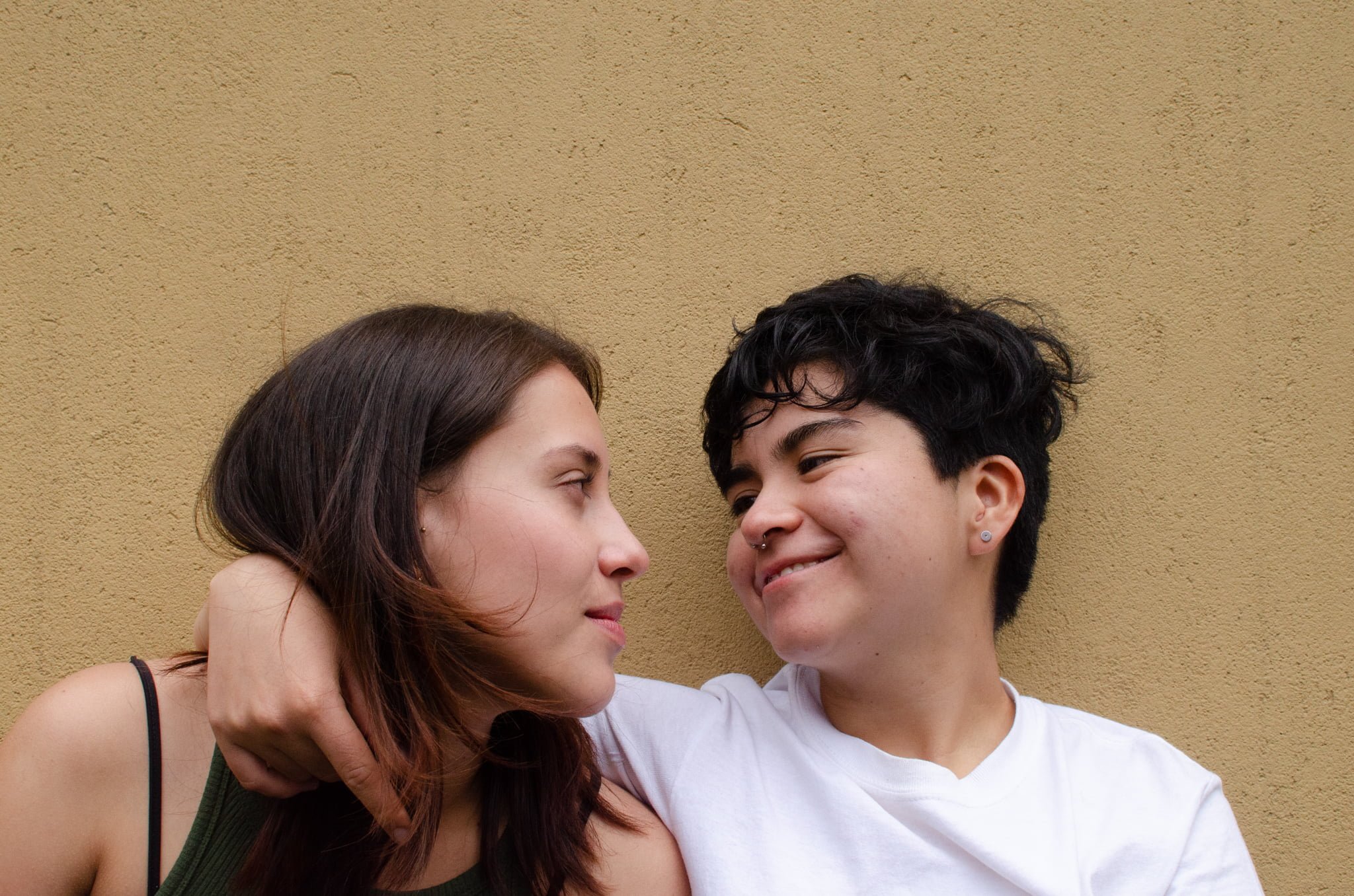
They feel that generally speaking, Colombia isn’t an LGBTQI+ friendly country because there is still a minority that discriminates and believes it has the right to silence, violate or oppress people in the community.
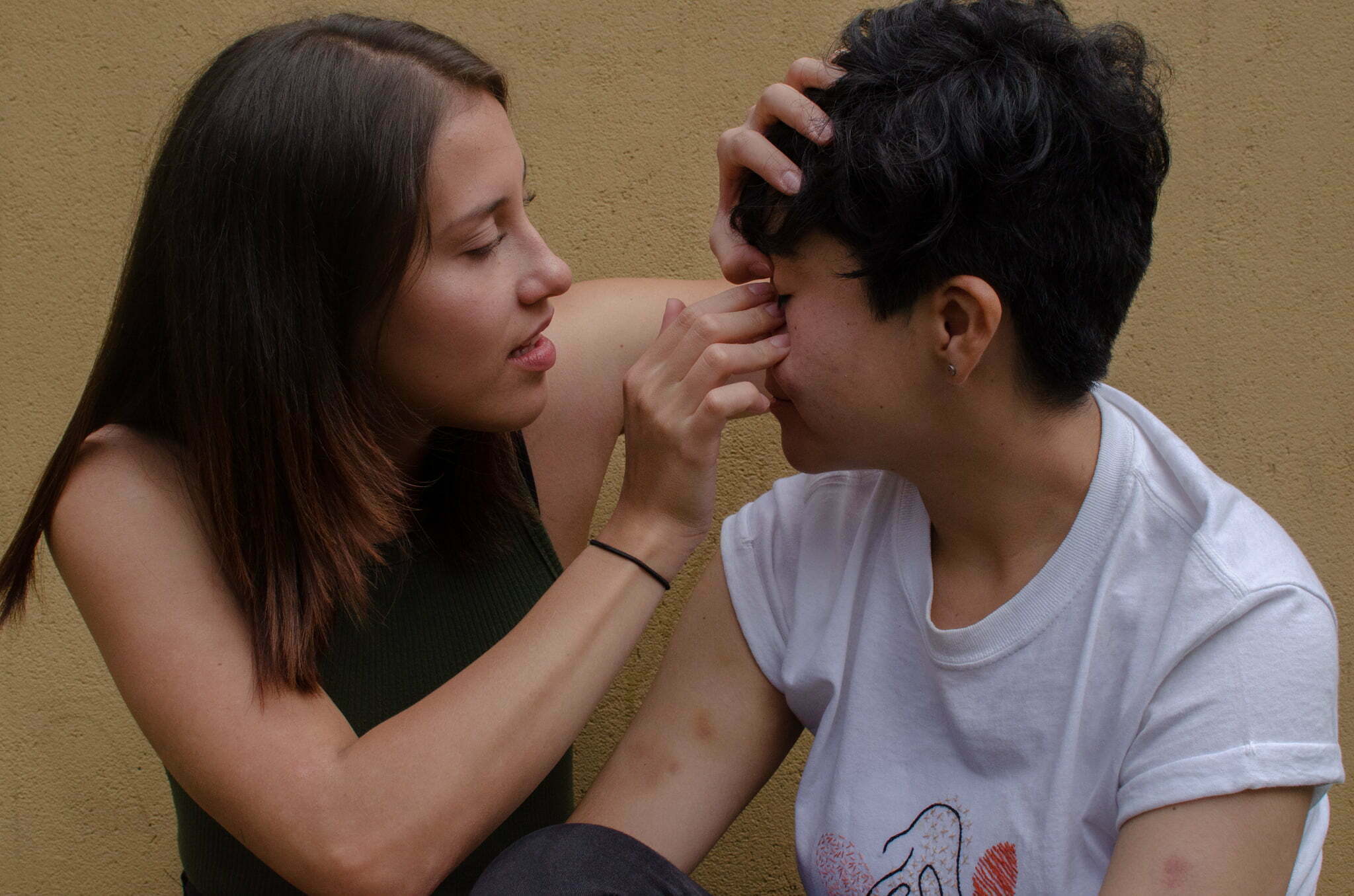
Alejandra and Lyn believe that acceptance hasn’t been established or achieved in Colombia because of institutional gaps, especially when it comes to Education. As an example, they state that to this day, there is no plan to include mandatory classes of sexuality education, or any education regarding gender identities or inclusion.
They both feel safe at home, in parks, restaurants and bars.
“Unfortunately the street is still a very unsafe space”, they told us.
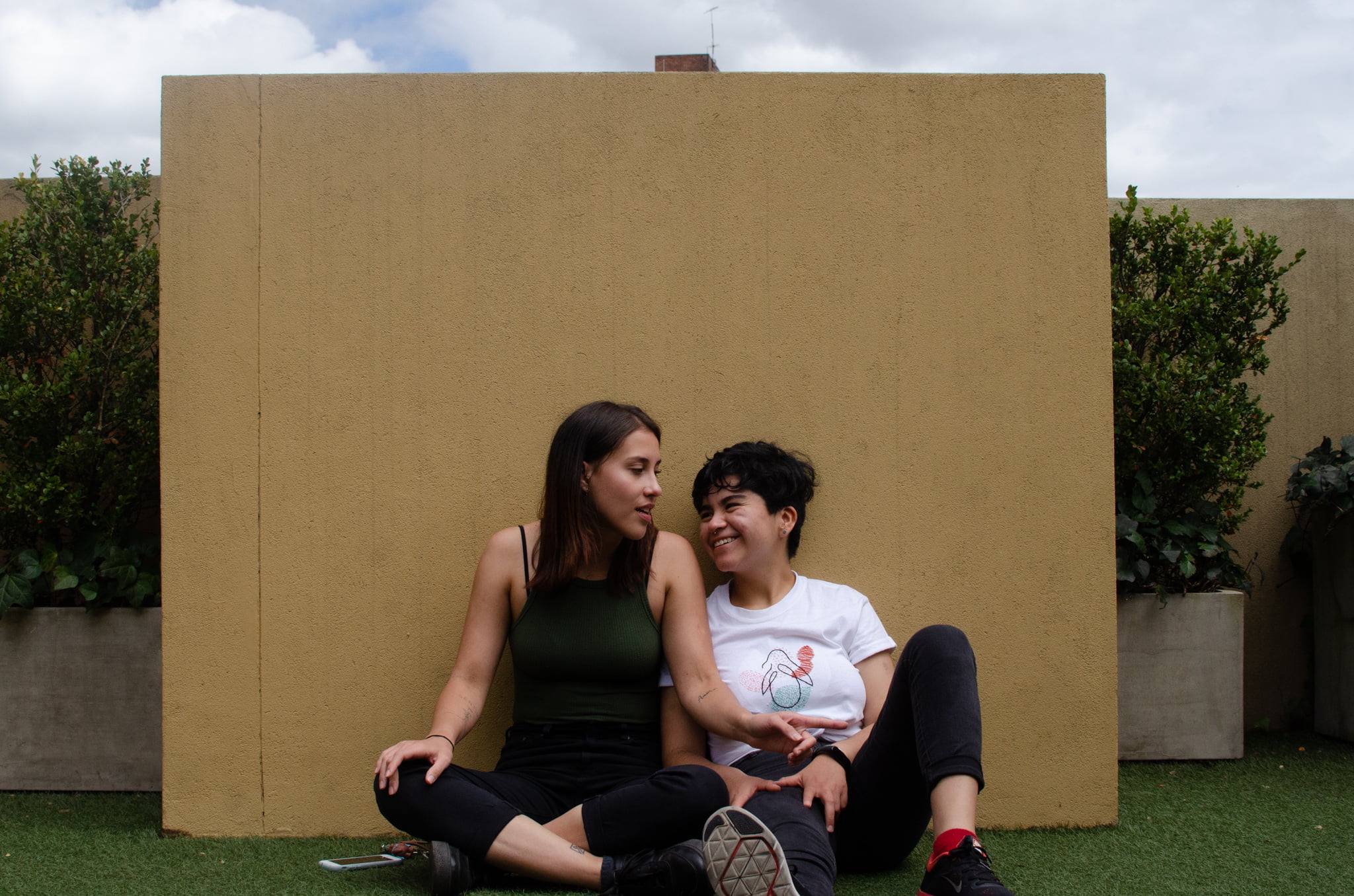
Laurel Díaz and Emily Blanco
Laurel lost some of its friends when it came out regarding its sexuality. “There was drama in every sense of the word”. Later on, when it came out regarding its gender identity, its mother couldn’t accept it.
“[My mother] has the cis heteronormative mentality very much stuck in her head and getting rid of it is a painful process. It’s not easy for an LGBTQI+ person to have a voice in its head telling it that it doesn’t meet the standards to be x or y, only to come out and have a bunch of outside voices cursing it or even denying its existence”.
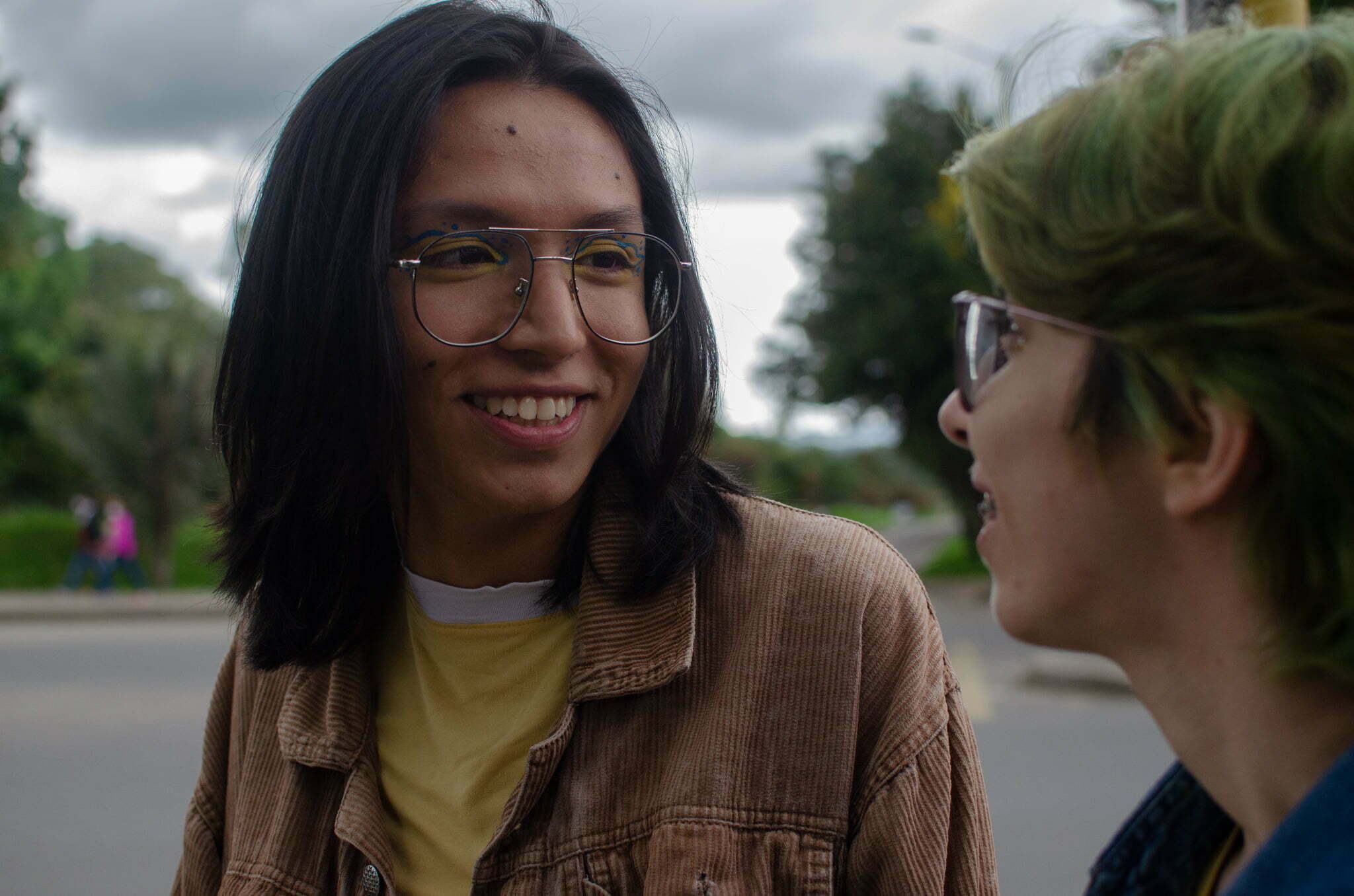
Laurel thinks that the “acceptance of diversity” still doesn’t exist in Colombia. It says that white people may be having more visibility in Bogota or in central cities, but trans women are still being stigmatised, gay men are getting murdered and non-binary people, demisexuals, asexuals, and others just don’t exist for the dominant system.
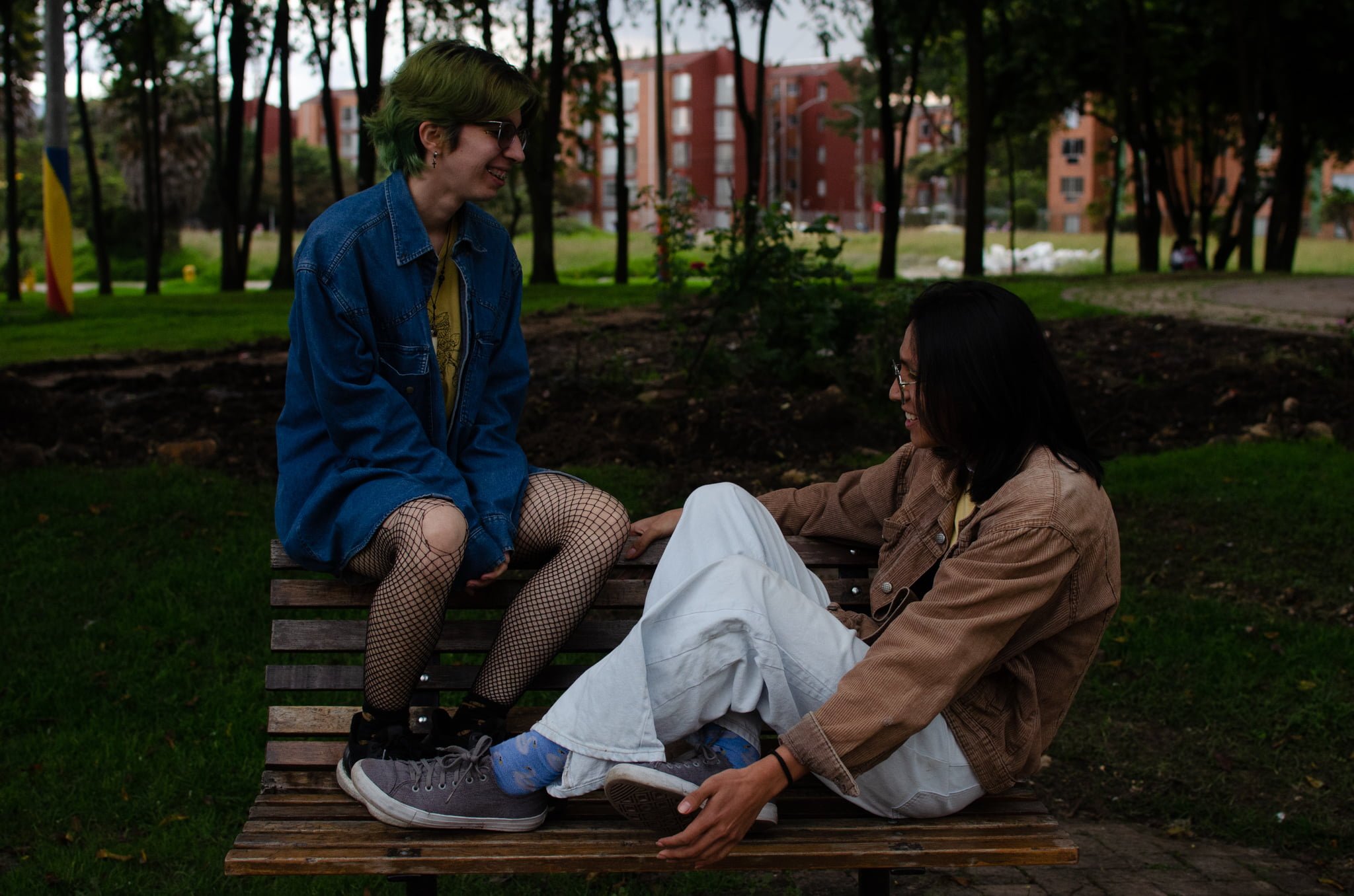
At the same time, the Colombian State hasn’t established educational programs promoting acceptance or modules that would educate children regarding sexuality. There are only some independent organisations that go to schools and give talks on comprehensive sexuality education, but even that isn’t deemed as mandatory by the government. At the same time most high-level education centres in Colombia tend to be religious or very expensive, so, according to Laurel, “there will always be a stigma”.
Laurel isn’t very optimistic regarding the recently established right of the non-binary individuals’ legal recognition, on one hand because the right isn’t fully legislated yet, and also because it says that in Colombia it is not uncommon for things to be left half done or for legal loopholes to exist. “I have learned over time not to get my hopes up too soon when it comes to the government”, says Laurel.
Laurel feels safe in its partner’s house – especially when it’s just the two of them there.
